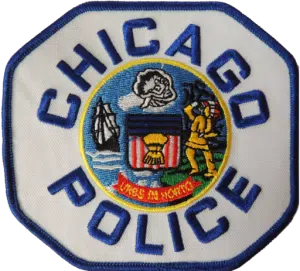By MICHAEL TARM Associated Press
CHICAGO (AP) — A Chicago native pegged as the city’s next police superintendent said Monday at his introductory news conference that his top priorities include finding ways to tamp down violent crime.
Larry Snelling, 54, a former police patrolman-turned-head of the department counterterrorism division, cited his own experiences in calling for a comprehensive strategy to address the violence.
“I’ve worked in some of the most violent beats in the city,” he said.
Chicago Mayor Brandon Johnson introduced Snelling at the news conference as his choice to lead the 12,000-officer police force in the nation’s third-largest city.
“He’s just a rare individual,” Johnson said.
Snelling was raised on Chicago’s South Side in areas he later worked as a patrolman and then as a commander. He joined the department in 1992.
Snelling was a sergeant until just five years ago, and he told reporters Monday it was still hard to fathom that he’d risen through department ranks and was now slated to become its top cop.
“At no point did I ever think I would find myself in this position,” he said.
Snelling has been chief of the department’s Bureau of Counterterrorism, which coordinates with the Office of Emergency Management and Communication and other city agencies, since 2022.
The superintendent’s job is a notoriously tough one and many past heads of Chicago police have lasted only a few years amid pressure from interest groups, including the local police union.
Among his other priorities, said Snelling, was building trust with communities historically suspicious of police, ensuring high-level training for officers, and attending to officers’ mental well-being.
“In order for our officers to love someone else, we have to love them,” he said.
Johnson and Snelling spoke in general terms and offered no specifics on police strategies, though Snelling did briefly mention the need to build on the use of technology in fighting crime.
That has, at least in the past, been a point of disagreement.
Johnson and Snelling differed on the use of a gun-detection technology called ShotSpotter, which its critics say isn’t fully reliable and disproportionately targets Black neighborhoods.
As a candidate, Johnson criticized the network and suggested ending its use in Chicago. Snelling has previously defended the system as a valuable policing tool.
When a reporter asked Johnson Monday about those contrasting views, Johnson said only that he and Snelling were committed to “listening to each other.”
While crime in Chicago often focuses on murders and shootings, the numbers so far in 2023 are down in both categories by 5% and 10%, respectively, according to the most recent department crime statistics. However, overall major crime rates are up 35% so far this year over 2022.
Both Johnson and Snelling alluded to compliance with a court-monitored department overhaul plan, called a consent decree. It, among other things, calls for more community policing and expanded training on the use of force.
Snelling, who has a bachelor’s degree in adult education from DePaul University, also worked for years at the Chicago police academy — where he became a widely acknowledged expert on use-of-force issues.
“My focus,” he said Monday, “is to ensure these officers get the best possible training so they can police constitutionally.”
A federal judge approved the plan in 2019, two years after a damning U.S. Justice Department report released in the waning days of the Obama administration found that deep-rooted civil rights abuses permeated Chicago’s force, including racial bias and a tendency to use excessive force.
The consent decree was a culmination of a process that started with the release of video in 2015 showing white police officer Jason Van Dyke shooting Black teenager Laquan McDonald 16 times. It led to the Justice Department investigation.
Snelling was named by Johnson Sunday following a monthslong search led by the Community Commission for Public Safety and Accountability. The selection is subject to City Council approval.
Snelling would succeed David Brown, who in March announced that he would step down the day after Chicago’s mayoral primary election in which crime was a central issue. An interim superintendent, Fred Waller, stepped in after Brown.
Then-Mayor Lori Lightfoot lost the primary, and Johnson went on to win the mayoral race in April.
Snelling was one of three finalists nominated by the Community Commission for Public Safety and Accountability. The other two finalists were Shon Barnes, the police chief in Madison, Wisconsin; and Angel Novalez, Chicago police chief of constitutional policing and reform.


